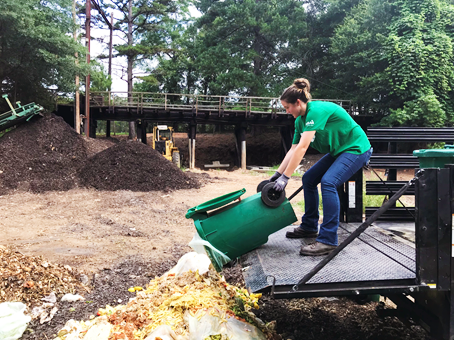

Cherry Crossing Research Center is an established composting facility that is defining best practices for university composting. The program now collects back of house organics from all the campus dining halls, paper towels in select academic and housing buildings, and food waste from football and other events. Approximately 606 tons of compostable products were collected and composted between July 2018 and June 2019. Clemson’s program is willing to accommodate feedstock with a greater contamination rate than commercial composters and adjust processing accordingly.
The team can hand-sort material as it comes in, which allows the program to run pilots and test compostable materials with minimal consequence. The turned static pile process is one of several methods used for composting at Cherry Crossing. Other methods include in-vessel, vermicomposting, black soldier fly larvae, and aerated static pile. These methods are used for special use cases and educational demonstration. For example, Clemson was able to handle contaminated material from a zero-waste picnic without losing compost value by processing the picnic waste separately from the everyday compost streams by using the in-vessel and black soldier fly larvae.